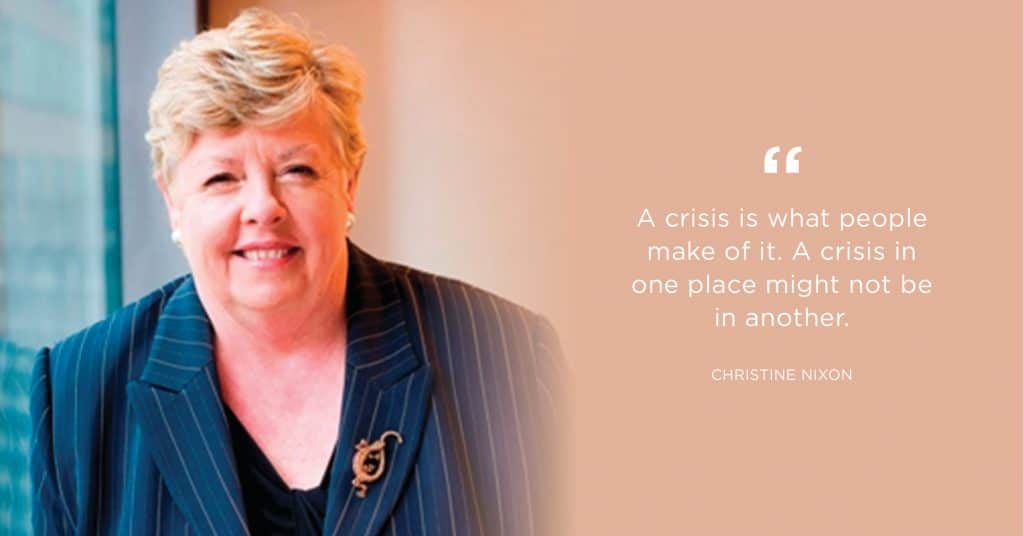Gaining some healthy perspective on a health crisis | Christine Nixon | Resilience

Business resilience in the time of COVID-19
At ICMI we are fortunate to have Australia’s best business thinkers in our stable. Our speakers are experts in change management, dealing with disruption and guiding businesses through uncharted waters.
The current health crisis presents several challenges in both protecting our staff’s health today, and protecting their income tomorrow as business realities set in. With this in mind, we’ve asked our speakers to share their insights on how businesses can ride the shockwave and minimise the impact.
About the Author:
The first woman to become Chief Commissioner of Victoria Police in Australia, Christine Nixon lead a staff of over 14,000 through organisational change, disruption and extreme circumstances, so she’s no stranger to managing a crisis.
Here’s what she had to say:
“Never let a Crisis go by” as the experts say.
Many governments, businesses, organisations, health authorities and people will be, or are being, challenged over their response to the COVID-19 Virus.
The following advice comes from years of being involved with and reading the research on crisis management, and in more recent times with university, police and health professionals.
A crisis is what people make of it
Actors have a stake in beefing it up or playing it down, not always based on evidence but sometimes political gain. A crisis in one place might not be in another.
A crisis usually occurs when a system, process or group is already weak or broken – It splits the problem open uncovering long-known flaws.
Never let a crisis go by
Sometimes the best chance to change or fix things is to use the opportunity to dig in and fix the issues.
Communications are critical
Make them often, simple, underpinned by best evidence. Explain what’s happened, what will happen next, what are you doing about it – if you’re not sure what to say – say so – don’t pretend or make up an answer, vulnerability is okay.
Find a way to bring the crisis to a close
People cannot stay at a high tension level for too long. If you take the current health crisis, it is being suggested that in a few months we’ll be back to normal. Think about the lessons you have learnt; what mistakes did you find; how to fix a system? In emergency management after a crisis, there is always a debrief to figure out what went wrong and what can we do better next time.
A crisis never speaks for itself
You need to shape the understanding, explain the situation and step up. As the leader you need to be sending the message.
Give people hope
We will work through this, we’ve got each other, and management supports you.
This article is part of our blog series on business resilience.